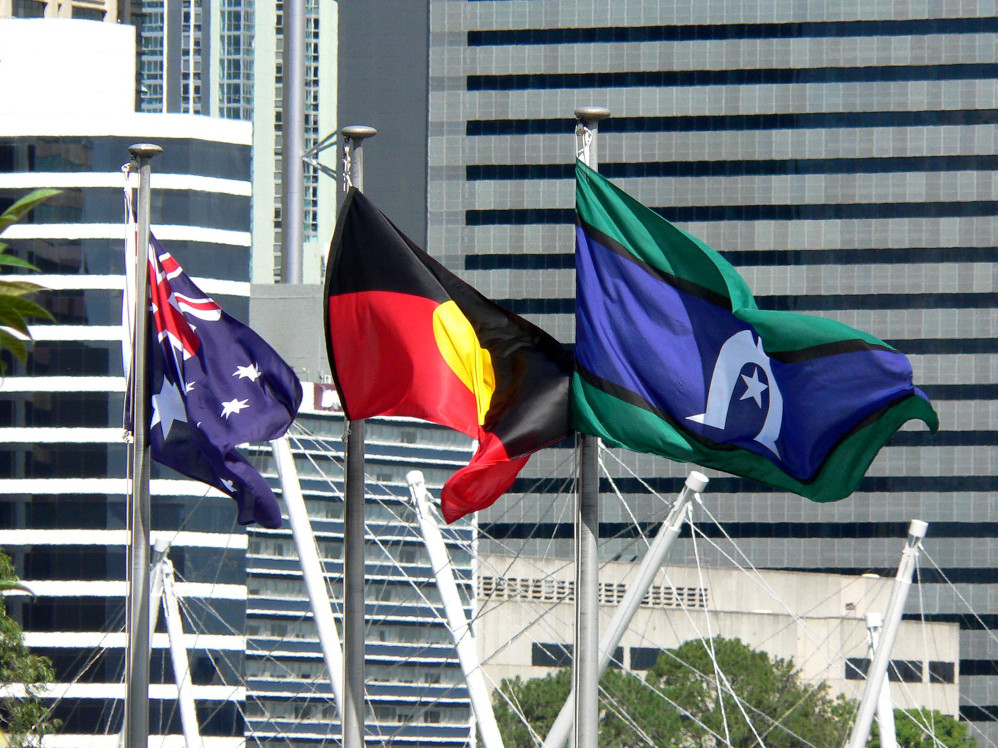Former PM Tony Abbott raised a good point on the ABC RN Breakfast yesterday: many Aboriginal settlements in remote areas have no economic base, and this has the effect of discouraging school attendance. Interviewed by Patricia Karvelas, who spoke over him rather too often, he responded, “I am not saying we should shut those places down.”
Pressed, Abbott did not suggest a way forward other than boarding school for secondary school students from remote communities. That was notable, comming from a politician who has been concerned with indigenous policy for some time. But some “No” campaigners take a tougher line.
Forcing people to leave communities is something that prominent “No” campaigner Anthony Dillon, an indigenous ACU academic, has said needs to be considered. “It’s typically in the remote areas where you have the problems,” he said at a Voice debate at Hoxton Park Anglican church in western Sydney. “And Stan Grant himself said that eight years ago, we need to seriously consider moving those people to where the opportunities are. So if you can open the opportunities to the people, then you bring the people to where the opportunities are so that they can have what I’ve got, what he’s had, and what the architects of the voice have had.”
He suggested “If those communities are viable, then yes, we need to invest in them.” That leaves the question of those communities that Tony Abbott pointed to as the ones “without an economic base.”
It’s the hard questions like that that point to the need for a voice that begins locally, and regionally and, when needed, speaks nationally.
What is disappointing is that Tony Abbott proffers no solution, just “integration” into wider Australia. What this means for remote communities is not clear, as his quick response to Karvelas that he does not want them to be shut down by the government demonstrates. This is indeed a problem still in search of a solution.
One solution to part of it is Christian Schools, including high-fee ones like Barker College, setting up schools on country in partnership with community.
The issue of the future for remote communities, is a “wicked problem” one with many interdependent factors making them seem impossible to solve. It might be the best example of an issue, where the “no” case saying “treat everybody the same” is exposed as a motherhood statement. Ensuring equality of outcomes in education, health and family life in remote communities will mean searching out tailor-made solutions. The more difficult a problem, the greater the need for consultation.
“Who is indigenous?” is another looming issue – one that dominated discussion on The Other Cheek’s socials. This week Presbyterian minister David Robertson suggested there are 300,000 false claims of indigenous identity, citing unnamed aboriginal elders. That amounts to a claim that almost a third of the estimated number of people counted as Indigenous by the Australian Bureau of Statistics (983,700 in 2021) are falsely claiming this status. Without commenting on whether there is sufficient evidence for this claim, we can simply note that there is a significant issue here – partly inflamed by the history of the stolen generation that removed people from their community. Some families can have some claiming aboriginal identity and some not.
Moving forward on this issue of indigenous identity requires consultation, likely a painful and complicated process, with the indigenous communities in Australia – why not form the voice so the indigenous communities of Australia can come to terms with the best way ahead?
.
Everywhere you look are many hard questions surrounding indigenous communities in this country, ranging from incarceration rates, longevity and other measures of health and how to help families. All of them would seem to benefit from listening and consultation.
Critics of the Voice proposal do bring up many issues worthy of consideration. But it turns out that having something like the Voice would help us move forward.


The Voice cannot address up to 300 indigenous groups in Australia.
Like USA and Canada we need treaties so that each tribe/community can address its own issues. Recognition in the constitution is fundamental but treaties rather than one voice is required.
https://bulamatariblog.wordpress.com/2023/10/04/a-voice-or-300-treaties/
The voice – if the Calma Langton report suggestions are followed is local, regional and national. I agree that treaties (plural) are the desirable outcome.